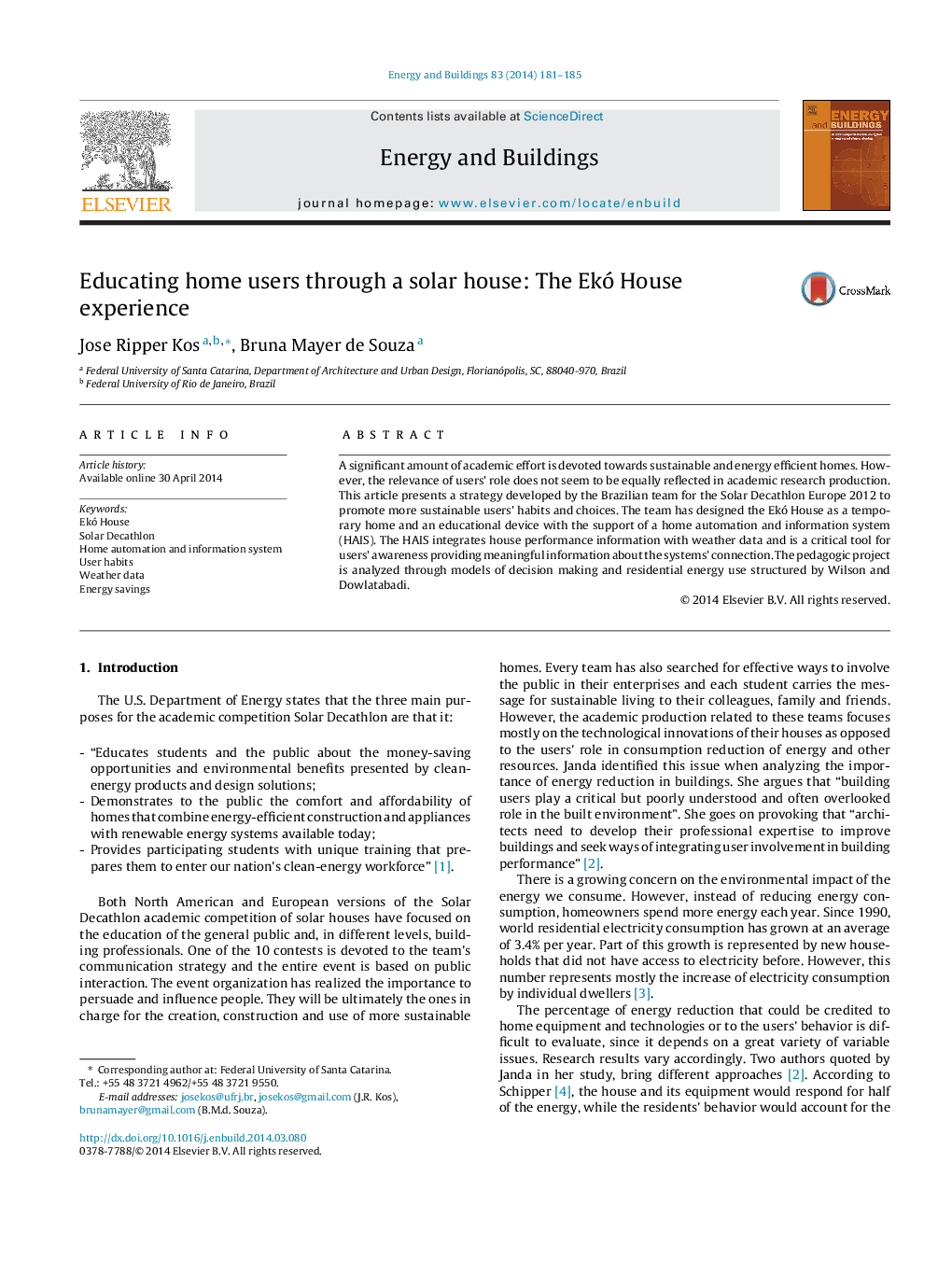| کد مقاله | کد نشریه | سال انتشار | مقاله انگلیسی | نسخه تمام متن |
|---|---|---|---|---|
| 262741 | 504048 | 2014 | 5 صفحه PDF | دانلود رایگان |

• Identification of the users’ role in energy and other resources consumption.
• Identification that the house can teach its dwellers through various forms.
• Potential confirmation through established models of decision making.
• Identification of education as a key instrument to change users’ behavior.
A significant amount of academic effort is devoted towards sustainable and energy efficient homes. However, the relevance of users’ role does not seem to be equally reflected in academic research production. This article presents a strategy developed by the Brazilian team for the Solar Decathlon Europe 2012 to promote more sustainable users’ habits and choices. The team has designed the Ekó House as a temporary home and an educational device with the support of a home automation and information system (HAIS). The HAIS integrates house performance information with weather data and is a critical tool for users’ awareness providing meaningful information about the systems’ connection. The pedagogic project is analyzed through models of decision making and residential energy use structured by Wilson and Dowlatabadi.
Journal: Energy and Buildings - Volume 83, November 2014, Pages 181–185